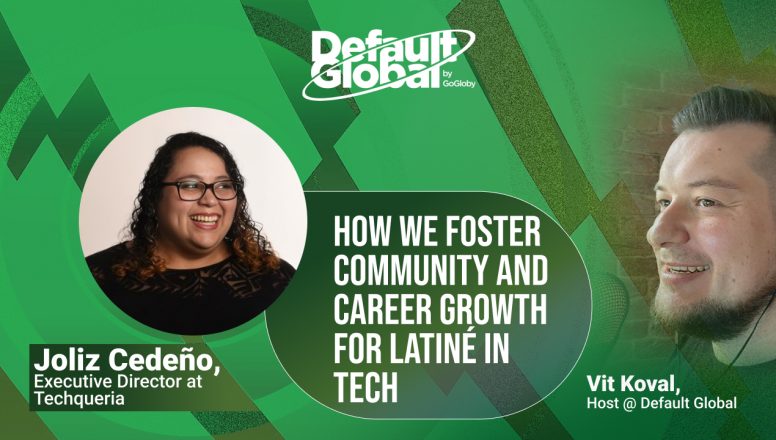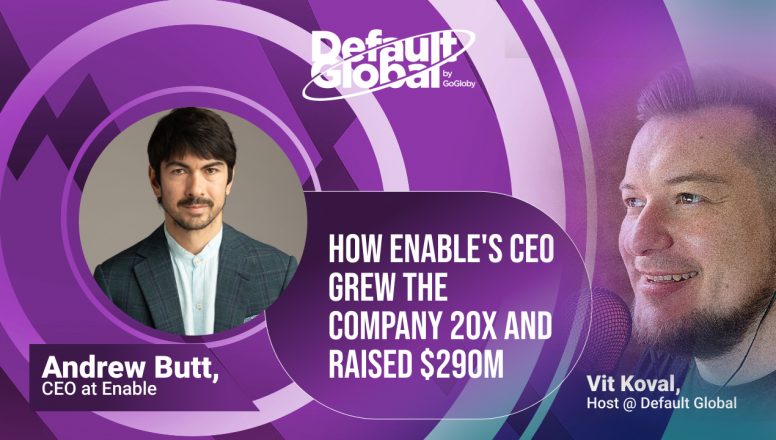Meet Maria Canton, Program Manager, Equity & Belonging at Zillow:
Maria Canto is the Program Manager for Equity & Belonging at Zillow, with over a decade of experience in global recruitment and diversity initiatives. Maria’s career has taken her through leadership roles in companies such as Lyft, Bosch, Tech Mahindra, and now Zillow, where she has focused on talent development and fostering inclusive workplaces.
Born and raised in Guadalajara, Mexico, Maria has played a key role in helping top U.S. companies expand into the Mexican talent market. Her passion for diversity, equity, and inclusion (DEI) stems from firsthand experiences of cultural misconceptions in international workplaces. She has been instrumental in developing cultural training programs, advocating for gender equity, and shaping inclusive recruitment strategies across Latin America and beyond.
Today, Maria is at the forefront of promoting equity and belonging in remote work environments, helping organizations build globally diverse teams and navigate the complexities of employment compliance and cross-cultural collaboration.
Listen Up: Maria Canton, Program Manager, Equity & Belonging at Zillow — Full Podcast Episode on Spotify
Watch Now: Vit’s In-Depth Talk with Maria Canton, Program Manager, Equity & Belonging at Zillow
Quick Read: Maria Canton, Program Manager, Equity & Belonging at Zillow, Interview Highlight
I had the pleasure of speaking with Maria Canton, who is currently leading Talent, Equity & Belonging programs at Zillow. When I asked about her journey into the recruitment and diversity field, Maria shared her beginnings and recalled how diversity challenges in global workplaces piqued her interest.
She mentioned:
“While working in recruitment, I started looking at a lot of situations around diversity, misconceptions from Mexican culture, and others.”
This personal drive led her to focus on diversity, equity, and inclusion (DEI) efforts.
Hiring in the Mexican Market
When discussing the entrance of U.S. companies into the Mexican talent market, Maria emphasized the cultural differences that can affect hiring practices.
She explained:
“Mexican candidates will have a more personal conversation, and in the US, it’s more like, show me your tech knowledge.”
This cultural understanding is crucial, as misconceptions can lead to biased interviews. I’ve seen firsthand how assumptions can derail market entry plans, highlighting the importance of local insights.
Strategies for Attracting Mexican Talent
I inquired about strategies used by companies like Zillow and Lyft in adapting their hiring methods. Maria stressed the importance of understanding the local culture and adjusting the interview process to keep candidates engaged.
She noted:
“Open communication and explaining the context are key,”
This aligns with my experience of how transparency can aid in managing expectations across cultures.
Diversity and Inclusion Across Borders
Maria is a strong advocate for diverse and inclusive workplaces. She discussed the essential need for global companies to ensure diversity, stating,
“If you want a diverse team, you have to be open-minded to other roles.”
Building an inclusive environment goes beyond remote hiring; it’s about making conscious efforts to include and nurture talent from varying backgrounds.
Balancing Cultural Integration with Global Standards
Balancing local cultural integration and global diversity standards can be challenging. Maria pointed out that diversity looks different across regions, such as between Mexico and the U.S. Understanding these differences is crucial for aligning company-wide DEI strategies.
“Learning about the region that you’re hiring in is basic,”
she remarked, which resonates with my belief in the power of education.
Overcoming Challenges in International Expansion
When asking about challenges in international expansion, Maria cited misconceptions, particularly the idea that hiring in Mexico is cheaper, as significant obstacles. She also highlighted gender biases and the lack of preparation when interviewing members of the trans community. These hurdles underscore the need for comprehensive interviewer training — a practice I’ve found essential in fostering inclusive recruitment.
Future Prospects for the Mexican Talent Market
Looking ahead, Maria envisions a more inclusive Mexican talent market with increased representation of women in leadership roles. Her optimism is palpable as she notes, “Five years from now, I’m very optimistic with the tech industry in Mexico.” This aligns with the global trend towards diverse workforces I continually advocate for.
Advice for Mexican Talent Aspiring to Join U.S. Companies
Maria’s advice to Mexican tech talent aspiring for global roles is to be proactive:
“Reach out to recruiters… and ask for their advice on being a good candidate.”
Her insight reminds us that job searches are not just about fitting into company criteria but aligning the company with personal career goals.
In conclusion, Maria Canton provided a wealth of knowledge on navigating the complexities of hiring in Mexico and championing diversity in the workplace. Her insights are invaluable for U.S. executives and Mexican professionals alike, offering a roadmap for successful collaboration across borders.






